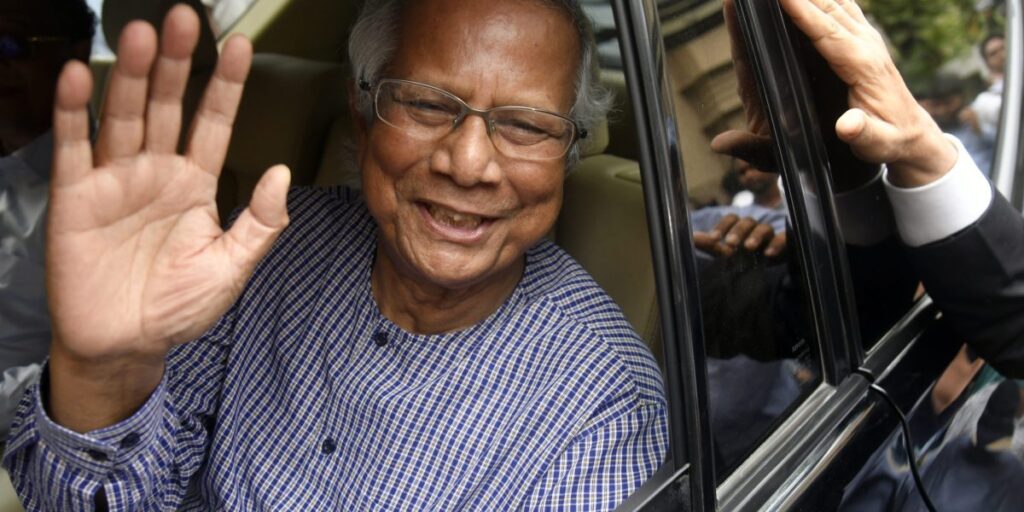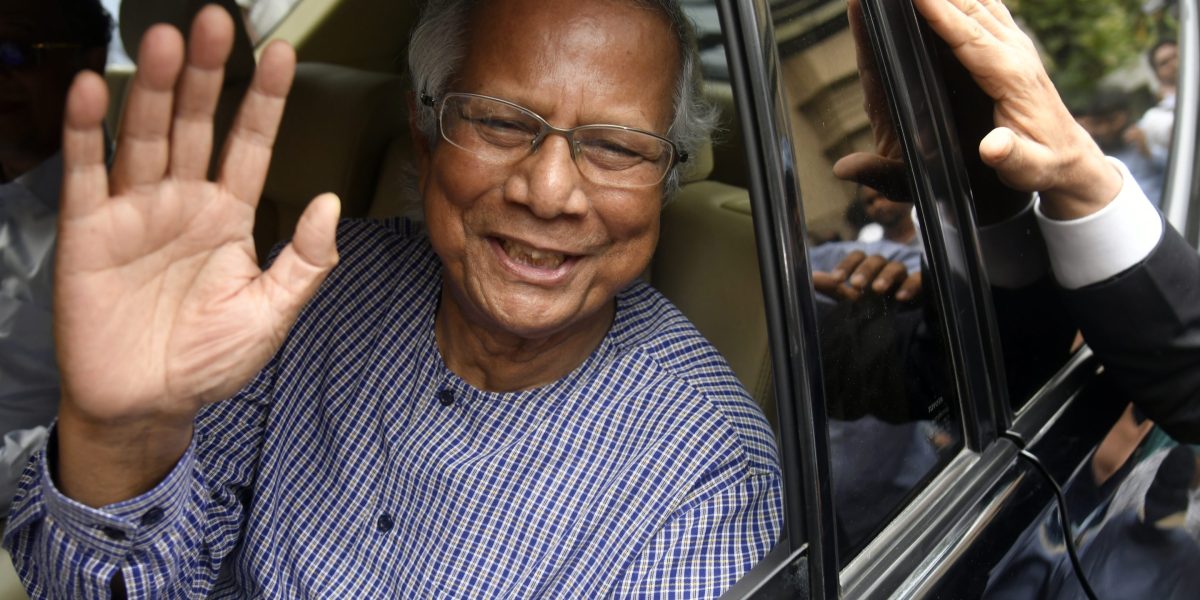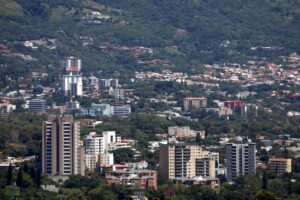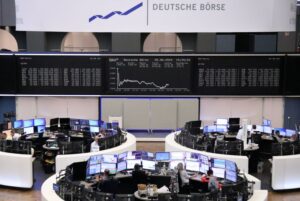A Nobel laureate and microfinance pioneer steps in to lead Bangladesh out of a deadly protest crisis
Grameen Bank founder Muhammad Yunus will lead an interim government in Bangladesh after protests ousted Prime Minister Sheikh Hasina.


The South Asian country of Bangladesh could soon turn to one of its most famous economists to lead the country, following deadly protests that led to the dissolution of the country’s parliament and its Prime Minister, Sheikh Hasina, fleeing the country by helicopter.
Muhammad Yunus, who won the Nobel Peace Prize in 2006 for his work with microfinance lender Grameen Bank, will lead the country’s caretaker government, according to Bangladesh’s national news agency. The decision was made following a four-hour meeting involving President Mohammed Shahabuddin, military chiefs, and student protest leaders.
Protest leaders had lobbied for Yunus to take over. “In Dr. Yunus, we trust,” one leader wrote on Facebook. The Nobel laureate, currently outside of Bangladesh, is expected to return to the country soon.
From facing jail time to leading the country
It’s a remarkable turn of events for Yunus, who was facing a jail sentence earlier this year.
In January, a judge in Dhaka convicted Yunus and three other executives at Grameen Telecom for several labor law violations, including failing to create a welfare fund for employees, and he was sentenced to six months in jail.
Yet observers believed the case to be politically motivated. Yunus was considered a rival to Hasina, and had briefly flirted with the idea of setting up a rival political party. World leaders like former U.S. president Barack Obama and former UN Secretary-General Ban Ki Moon called on Bangladesh to suspend the legal proceedings, to no avail.
At the time, Yunus said the verdict was “contrary to all legal precedent and logic.”
A microfinance pioneer
Yunus is best known for his work with Grameen Bank, a financial institution he founded in 1983. The bank is best known for pushing the concept of microcredit, granting loans of less than $100 to Bangladesh’s rural poor, helping Yunus earn the moniker of “banker to the poorest of the poor.”
Economists credited these micro-loans for helping to boost Bangladesh’s growth, as they enabled people to invest in farming tools or other business equipment. Since starting operations, Grameen Bank has loaned $38.7 billion with a recovery rate of just over 96%.
Grameen’s success pioneered the microcredit model of development, as proponents argued that small loans to those without steady employment or collateral could spur entrepreneurship in poorer populations.
The Norwegian Nobel Committee awarded Yunus the Nobel Peace Prize in 2006 for his work in microfinance. The economist has also received Bangladesh’s Independence Day Award, the country’s highest civilian honor.
More recently, the concept of microfinance has been criticized for over-promising what it can do, and for pushing people deeper into debt without boosting the creation of sustainable micro- and small-sized enterprises. Yet development banks continue to invest billions of dollars into the movement, and some analysts argue financial access is still important for poorer populations.
What caused Bangladesh’s protests?
Hasina first became prime minister in 1996 to 2001, then became prime minister again in 2009. Her administration is credited with overseeing Bangladesh’s economic growth, with per capita income doubling since 2014. The garment industry, which produces goods for brands like Lululemon and Zara-owner Inditex, has helped fuel a large part of the South Asian country’s growth.
Yet human rights activists have accused Hasina of cracking down on dissent. Several opposition leaders were put in jail ahead of elections in January, which Hasina won comfortably.
The protests that ultimately ended Hasina’s 15-year run as prime minister began in July, in response to a government decision to preserve a quota reserving 30% of civil service jobs for those related to veterans of Bangladesh’s 1971 war of independence against Pakistan. Protestors believed the quota gave preferential treatment to members of Hasina’s party, the Awami League.
By mid-July, the peaceful protests had turned violent as protestors clashed with authorities and pro-government supporters. Bangladesh’s government tried shutting down the country’s internet to quell protests, to no avail. At least 300 people are reported to have died since the protests started.
By Monday, anti-government protestors had stormed Hasina’s official residence in Dhaka, the country’s capital. The prime minister had fled to India by helicopter.





